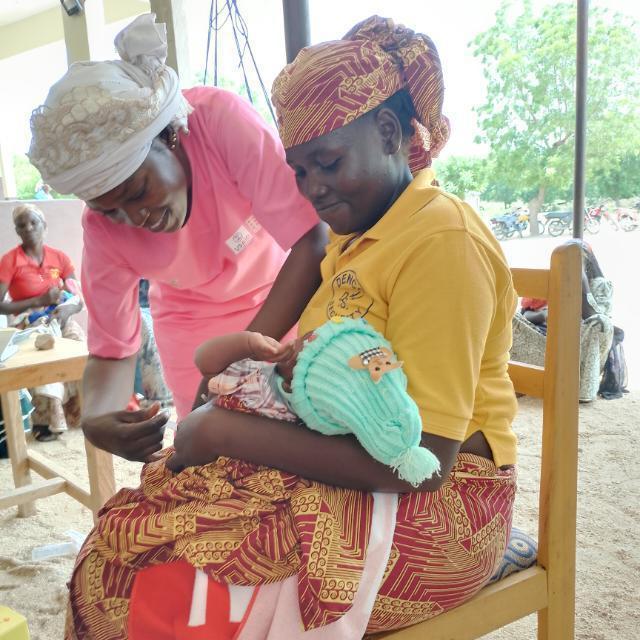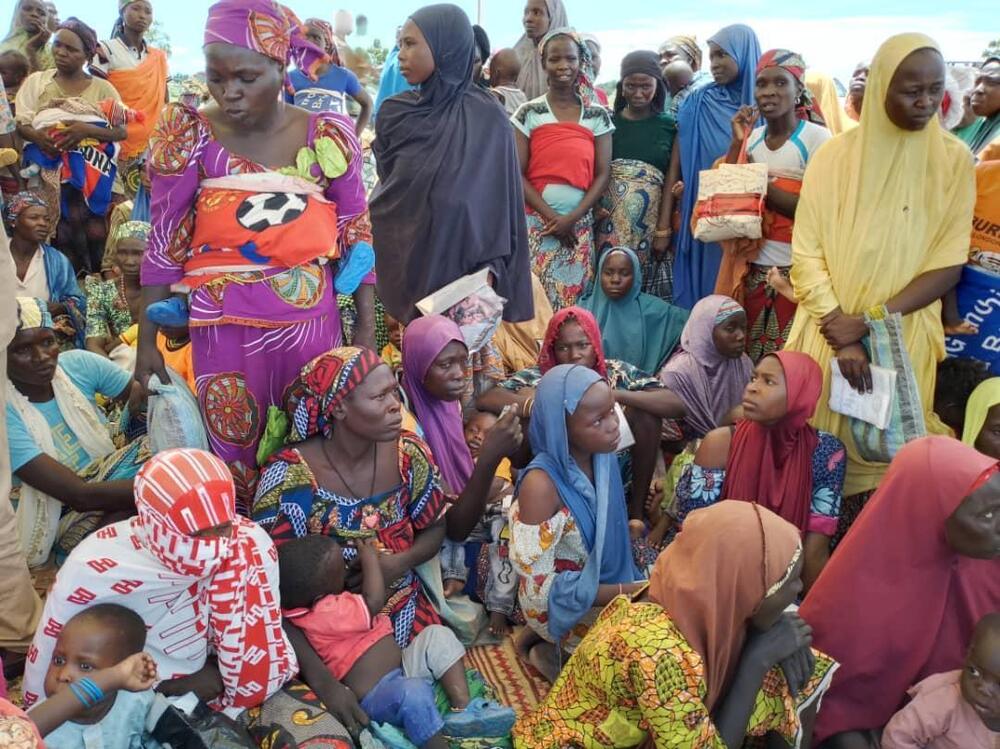News
How a teenage mother in Cameroon triumphed over child marriage and sexual violence amid conflict
- 07 June 2024
News
MAROUA, Cameroon – In Maroua, in Cameroon’s Far North Region, Aissatou* was forced into marriage at just 14 years old, her dreams of schooling shattered.
Fleeing violence by armed groups in their village near the border with Nigeria, her family had left their home, belongings, and everything they knew behind. With few resources left and no means of making a living, Aissatou’s parents saw no other option than to marry their daughter off to a wealthier man 40 years her senior, who they hoped would look after her as they no longer could.
She had to abandon her studies and was confined to his village, which also came under frequent attacks. Isolated from any support, Aissatou was soon assaulted and raped by one of the armed groups.
“They tore away my dignity, leaving me broken and alone,” she told UNFPA, the United Nations sexual and reproductive health agency. “They took everything – my books, my dreams, my childhood.”
When she found out she was pregnant, her husband's family cast her out to fend for herself on the streets – still a child but soon to be a mother.
Ensuring crucial sexual and reproductive health care

Aissatou struggled to support herself and resorted to selling peanuts to earn a living, before being referred to a programme run by UNFPA, which she described as “transformative”.
With funding from the governments of Norway and the United States of America, since July 2023 the programme has supported displaced people in conflict-affected areas of northern Cameroon who are in urgent need of gender-based violence protection and sexual and reproductive health services, particularly women and girls.
Aissatou received prenatal and postnatal checkups, clinical management for the rape she had endured, and assistance through childbirth by Caesarean section. She was also given a ‘baby box’ full of essential supplies for her newborn son.
As well as supporting survivors like Aissatou, UNFPA has distributed emergency reproductive health kits to eight health facilities in the Far North Region. These contain supplies such as soap and antiseptic wipes, sterile gloves, umbilical cord clamps, and maternal health medications to prevent postpartum hemorrhage and treat infections, helping to ensure safe childbirth even in settings lacking proper medical facilities.
Family planning and emergency contraceptive supplies are included too, which lessens the risk of unintended pregnancies – a pressing concern for women and girls especially during displacement – and treatments for sexually transmitted infection and post-rape care kits offer essential medical support for survivors of sexual violence.

Midwives on the move
More than 30 UNFPA-supported midwives are also deployed in health facilities and mobile health units across hard-to-reach areas of Far North Cameroon, with a team of community health workers providing maternal and newborn care.
The units can carry out screenings for sexually transmitted infections and refer patients to specialist centres for HIV and AIDS screening and clinical management of rape. Survivors of gender-based violence have access to eight safe spaces supported by UNFPA, where they can seek psychosocial support and be referred for further care.
The project is implemented by local partners, women-led organizations and decentralized health services and is aimed at supporting over 100,000 women and girls across eight districts in the Mayo Tsanaga, Mayo Kani, Mayo Danay and Logone-and-Chari Divisions.
Now 16, Aissatou stands tall, her health and well-being restored. “In the midst of despair, they became my lifeline,” she said of the health workers. “They provided not just medical care, but also a safe space to heal and hope again.”
*Name changed for privacy and protection
This is part of a series of stories illustrating progress made since the 1994 International Conference on Population and Development, which committed to ensure gender equality and the right to sexual and reproductive health for all. Find out more.